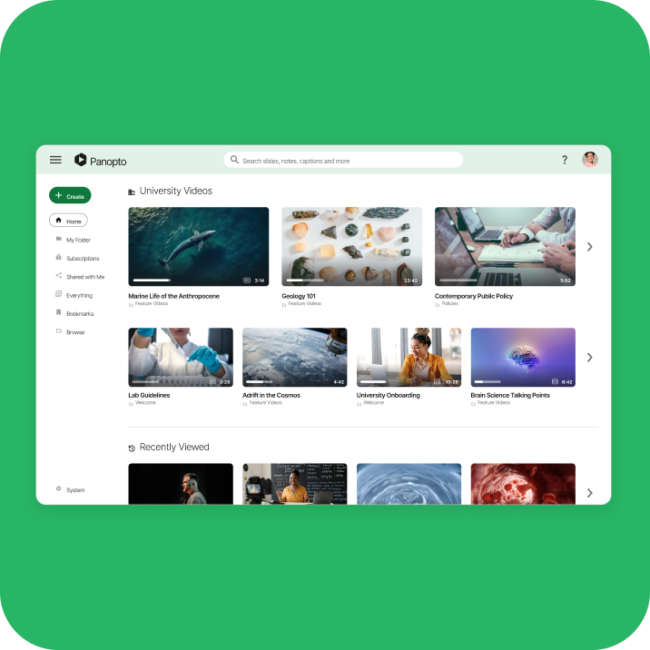- Deployment & Support
Africa’s Edtech Initiatives
To better understand edtech initiatives and potential in Africa, Panopto recently participated in an international summit on innovation in education, hosted in the beautiful coastal city of Cape Town. Hundreds convened for the event, which offered the opportunity to discuss priorities, challenges and potential solutions with ministers of education and industry leaders from 12 sub-Saharan African countries such as Kenya, Zimbabwe, Namibia and Botswana, among others.
In our conversations, we learned about some of the unique challenges and approaches for implementing a “blended learning” or “flipped classroom” model in these countries. Infrastructure issues and technology limitations in many areas require a very different approach to scenarios we can often take for granted in developed nations. For example, how do you most effectively offer distance education in an area that has no Internet connectivity? How do you provide on-demand lectures to rural areas whose only widely available electronic communication medium is radio?
As we discussed the ways in which a software product like Panopto can make an impact under these circumstances, a number of common themes emerged:
On-premises deployment
The ability to deploy blended learning software to a local server rather than hosting in the cloud is a necessity. This enables school systems to begin receiving the benefits of lecture capture without waiting for the regional infrastructure to catch up.
Mobile device support
In areas where mobile phones are the primary computing device, the ability to access (or even record) lectures using that device becomes critical. And although smartphone penetration in Africa is still in the single digits, cheaper handsets, decreasing data charges, and increased coverage of higher-speed mobile connections are expected to drive smartphone use into the mainstream in the years ahead.
Offline recording and access
Ensuring that offline functionality is a first-class concept in a blended learning solution offers several benefits. It gives faculty the opportunity to record videos anywhere and upload to the server once they have reestablished connectivity. And it enables recordings to be distributed on different types of offline media, such as DVDs.
Multiple output formats
We often assume today that lectures will be watched as on-demand videos. In some areas, the ability to listen to lectures in audio-only formats is a requirement.
Adaptive streaming
In areas where there is some Internet connectivity, adaptive streaming provides an improved viewing experience in the face of varying or high-latency networks.
Many of the nations in Africa we met with are working hard to close the infrastructure and technology gaps with their developed and newly industrialized counterparts; in the meantime, companies that are ready to invest in these locations must understand these issues and identify innovative ways to address them.
For Panopto, it begins with the type of open dialogue we experienced at the Innovation Africa Summit. Through continuing conversations with industry leaders, policy makers, educators and students, our goal is to deliver learning technology that accommodates today’s infrastructure and technology across Africa, and that can grow to meet the continent’s learning needs of tomorrow.
– Kristi Ries



